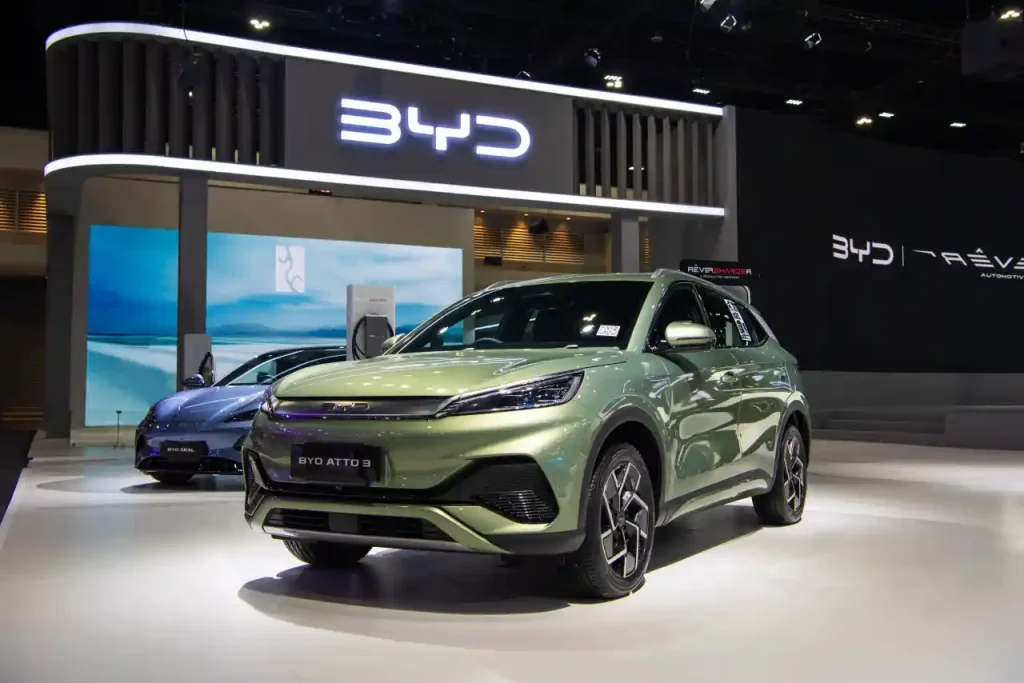Chinese electric vehicle giant BYD is preparing a renewed expansion in India as warming ties between New Delhi and Beijing open the door for senior leadership visits and new product launches.

Senior Management Travel Resumes
After five years of remote management, BYD India’s Managing Director Ketsu Zhang is set to travel to India within the next two months. The company has begun securing visas for executives and engineers to restart training, service equipment, and review its factory in southern India.
Atto 2 Launch on the Horizon
BYD is considering the launch of its compact Atto 2 SUV in early 2026. Priced under ₹2 million despite heavy import levies, the model would directly challenge Tata Motors, Mahindra & Mahindra, and new entrants like Vinfast, which recently rolled out its VF6 at ₹1.6 million.
Market Position and Regulatory Plans
Already the fourth-largest EV maker in India by sales, BYD currently sells four models, including the Atto 3. The company is now seeking regulatory approval to import more than the 2,500-car annual quota, potentially widening its portfolio.
Diplomacy Fuels Business Openings
India’s resumption of business visas for Chinese executives follows a diplomatic thaw marked by the Modi–Xi meeting in August and the resumption of direct flights between the two countries. Both leaders stressed the importance of cooperation despite lingering border disputes.
Government Engagements Ahead
During his upcoming visit, Zhang is expected to meet federal officials in New Delhi before inspecting the passenger vehicle plant. More senior executives are likely to follow as visa clearances are processed.
No Major Investments Yet
BYD’s immediate priority is to assess market conditions and review factory operations. While no new investment announcements are planned, the company is exploring options for local battery pack assembly and has been linked to possible collaborations with India’s Adani Group in lithium-ion battery manufacturing.
India’s EV Push
The timing aligns with New Delhi’s broader strategy to attract global automakers and EV supply chains, as the government looks to position India as a clean vehicle manufacturing hub.
